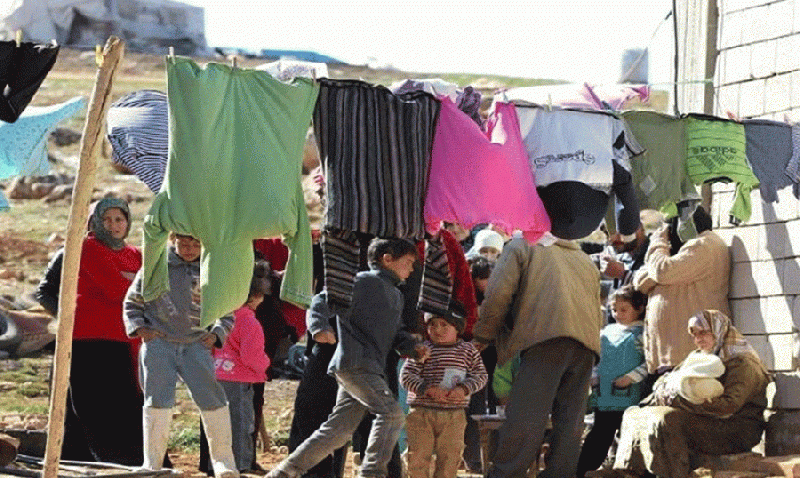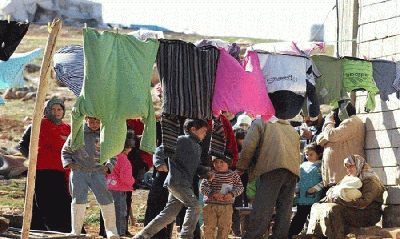The International Conference in Brussels titled "Supporting the Future of Syria and the Region," held on May 9 and 10, provided Lebanon an opportunity to issue a warning about the consequences of continuing to shoulder the burden of hosting Syrian refugees without receiving adequate support to help mitigate the associated losses. However, many fear that raising this issue from the platform in Brussels may merely be a cry in the wilderness, especially since the world, and particularly the West, is currently prioritizing the Russia-Ukraine war.
Minister of Social Affairs Hector Hajjar told "Al-Jumhuriya" that he and the Minister of Foreign Affairs explained at the Brussels conference and during side meetings the heavy burdens Lebanon faces due to hosting a large number of Syrian refugees. He pointed out that he informed attendees that the population density in Lebanon has reached 650 individuals per square kilometer, a significantly high rate compared to other countries hosting refugees, where it is around 100 individuals per square kilometer.
Hajjar highlighted that he presented the economic, environmental, social, demographic, and security impacts resulting from the presence of refugees, who constitute about 30% of the resident population, to the international audience in Brussels. He asserted that each country has specific characteristics that must be considered in approaching the issue of displacement, and thus, this issue should be addressed with flexible and varied means, according to each country's situation and capacities.
Based on the deteriorating reality in Lebanon, Hajjar communicated to the representatives of the international community participating in the conference that immediate actions are required, including:
- The immediate return of refugees to safe areas in Syria.
- Investing the funds provided to refugees in Lebanon into Syrian infrastructure.
- Distributing refugees who cannot return to other countries instead of Lebanon.
- Compensation for the Lebanese state for the $30 billion spent over 11 years to meet the needs of refugees, establishing a timeline for this compensation.
Hajjar acknowledged that while part of the economic crisis Lebanon is suffering from stems from mismanagement and accumulated corruption, another significant part relates to the repercussions of hosting refugees, who are spread across 1,011 out of 1,050 municipalities. He insists these are objective facts unrelated to any racist tendencies.
Hajjar revealed that he candidly told the participants and international figures he met with during side meetings that the issue of refugees is gradually slipping out of state control, with the state no longer able to manage all attempts at illegal crossings to Europe by sea. He expressed to them clearly: "If you are expecting only a million refugees to flee, you are mistaken in your estimation, because if the situation deteriorates further in Lebanon under the weight of the refugees, then 6 million people, including Lebanese, Syrians, and Palestinians, will try to escape to your countries."
In this context, Hajjar pointed out that the boat that sank off the coast of Tripoli contained desperate individuals from Lebanon, Syria, and Palestine, and even after its sinking, other boats managed to reach European shores. This indicates a dangerous potential for this phenomenon to worsen in the future if internal conditions continue to deteriorate.
Hajjar believes that Lebanon needs to enhance diplomatic work in decision-making countries through the relevant ministers and accredited embassies to defend national interests and explain concerns about the implications of the refugee issue. This should be a structured effort, not limited to special occasions, with the hope of successfully adjusting the international stance, which does not adequately consider Lebanon's unique composition and lacks realism in its approach to the Syrian reality.




